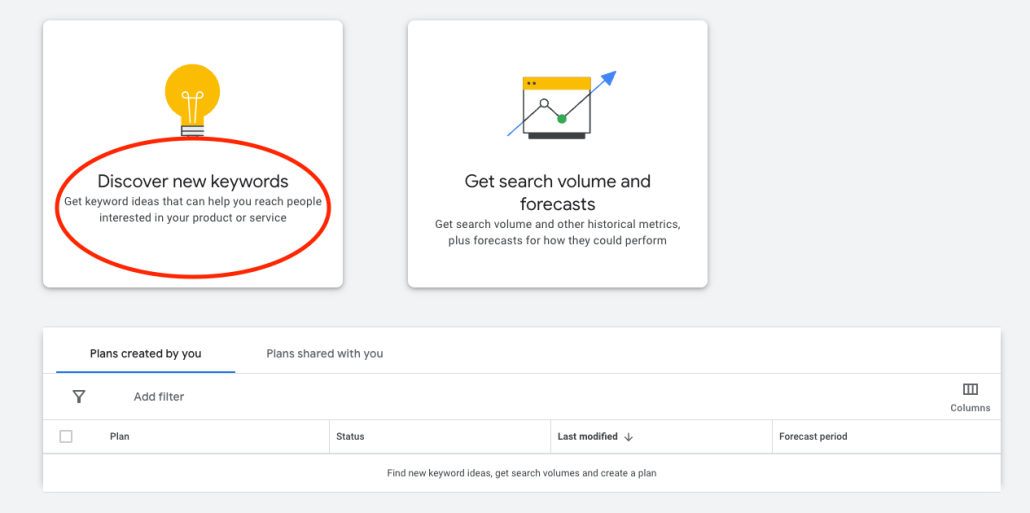Keyword research is the foundation of a successful Search Engine Optimisation (SEO) strategy. To ensure your website ranks high on search engine result pages and attracts relevant traffic, you need to identify and target the right keywords. One of the most powerful tools for this purpose is Google Keyword Planner. In this guide, we’ll walk you through the process of conducting keyword research using Google Keyword Planner, empowering your business with a comprehensive SEO strategy.
Step 1: Access Google Keyword Planner
To start, you must have a Google Ads account to access Google Keyword Planner. If you don’t have one, you can create it for free.

Once you’re logged in, head to the “Tools & Settings” menu and under “Planning,” select “Keyword Planner.”
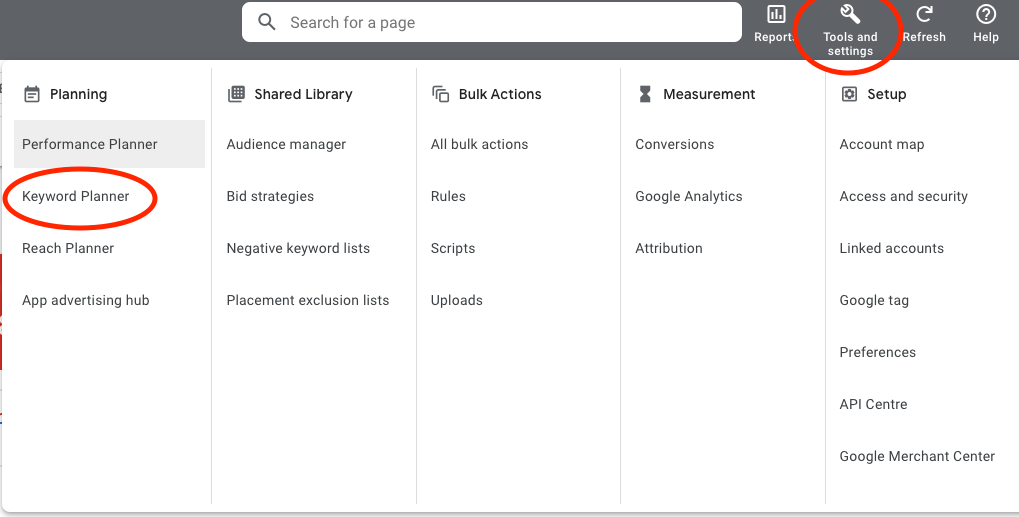
Step 2: Discover New Keywords
In the Keyword Planner, you have two main options: “Discover New Keywords” and “Get search volume and forecasts.” To begin, click on “Discover New Keywords.” Here, you’ll have the option to enter one or more seed keywords that represent your business, products, or services.
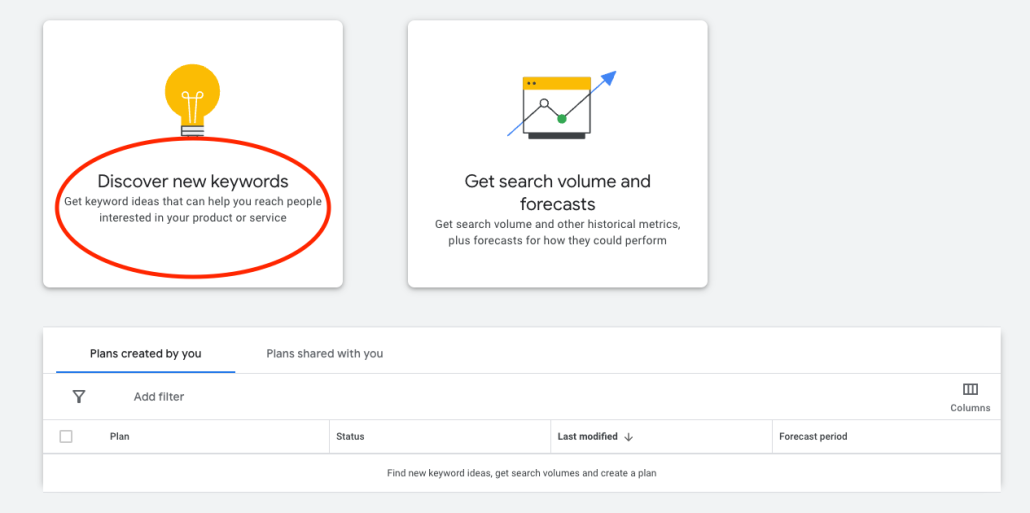
For example, if you run a digital marketing agency like Mass Reach, your seed keywords could be “digital marketing,” “SEO services,” “content marketing,” etc. The planner will then generate a list of keyword ideas related to your seed keywords.
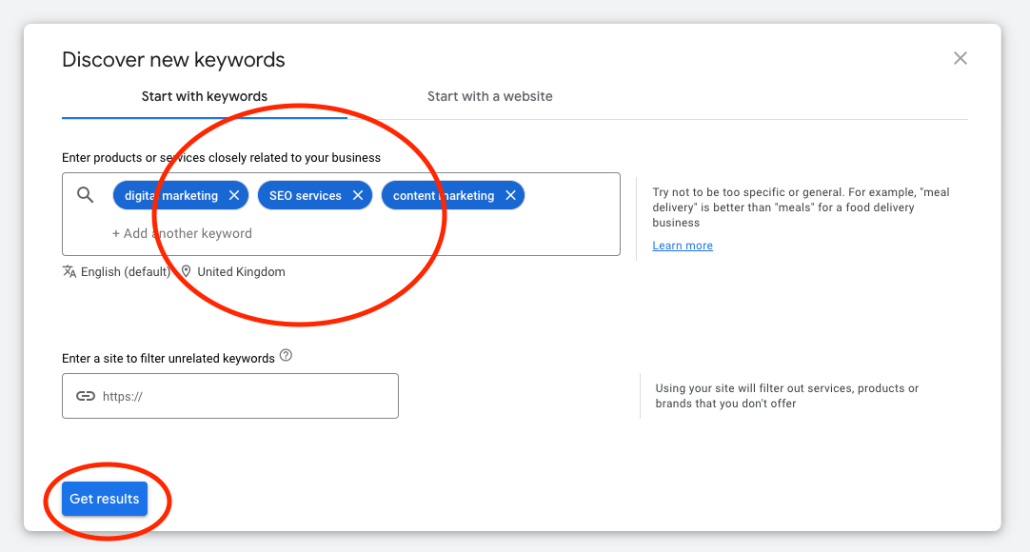
Step 3: Refine Your Keywords
The generated list may include various keyword suggestions and not all of them will be relevant or suitable for your website. To narrow down the options, pay attention to the following metrics:
Average Monthly Searches: This metric indicates the average number of searches a specific keyword receives per month. Focus on keywords with a significant search volume to target a larger audience.
Competition: Google Keyword Planner provides an overview of the competition level for each keyword. Lower competition keywords are often easier to rank for and may yield quicker results.
Top of Page Bid (low range): This value represents the lower range of the bid you might need for your ad to appear in the top positions. While this metric is more relevant for Google Ads campaigns, it can give you insights into the competitiveness of the keyword.
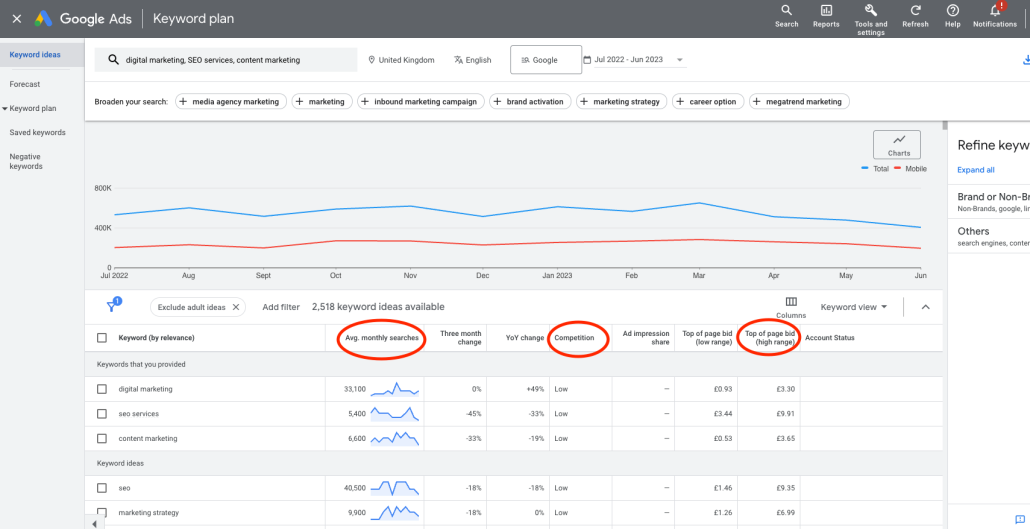
Step 4: Analyse Keyword Relevance
Relevance is crucial to the success of your SEO strategy. Ensure the selected keywords align with your content and the intent of your target audience. Avoid stuffing unrelated keywords into your content as it can harm your search rankings and user experience.
Step 5: Group Keywords into Themes
Organise your keywords into groups based on their relevance and similarity. This grouping helps create content clusters, allowing search engines to understand your website’s structure better. Content clusters improve your website’s authority and help it rank higher for a broader range of related keywords.
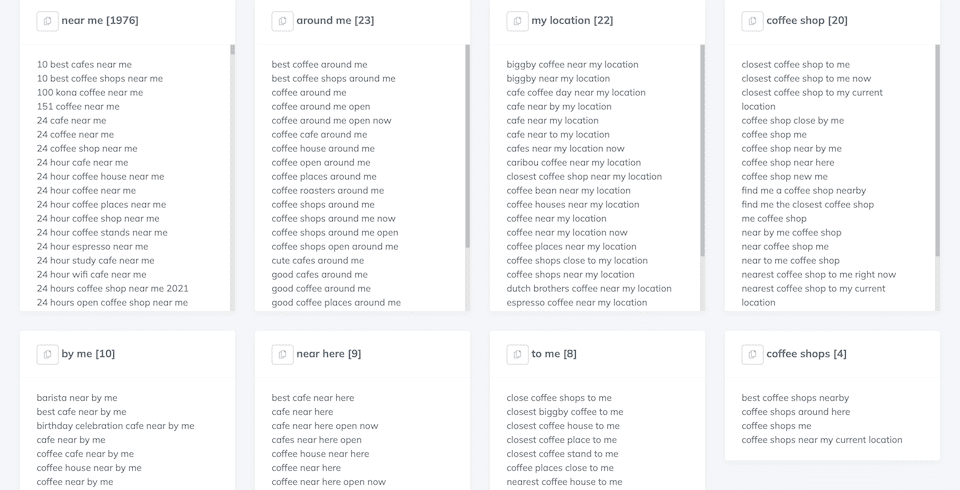
Step 6: Utilise Long-Tail Keywords
While short, broad keywords are essential, long-tail keywords should not be overlooked. Long-tail keywords are more specific and have lower search volume but often result in higher conversion rates. Including long-tail keywords in your content can help you attract more targeted and qualified traffic.

Step 7: Monitor and Refine
Keyword research is not a one-time process. As search trends and user behaviour change, your keyword strategy must evolve as well. Regularly monitor your website’s performance, search rankings and keyword trends using Google Analytics and Keyword Planner. This data will help you refine your keyword list and adapt your content strategy to stay relevant and competitive.
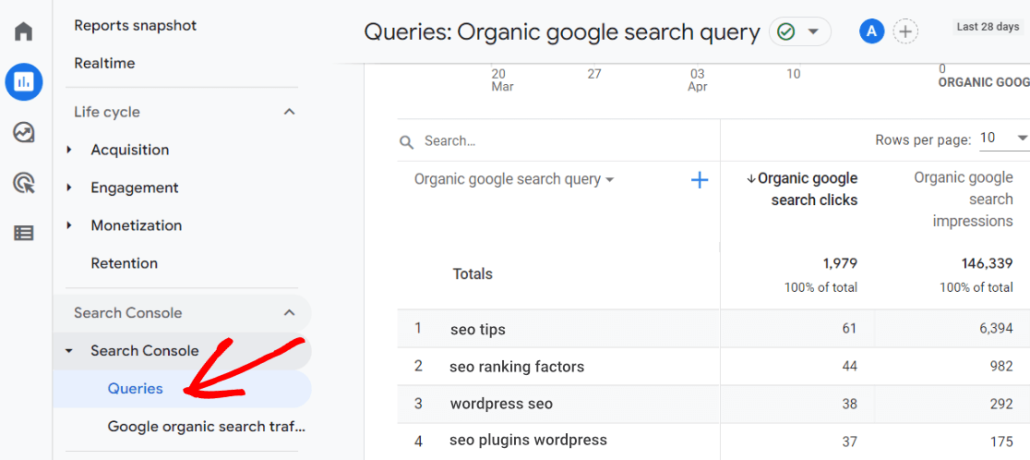
Conclusion
Conducting keyword research with Google Keyword Planner is a fundamental step in building a robust SEO strategy. By selecting relevant, high-traffic keywords and continuously optimising your content, you can improve your website’s visibility, attract organic traffic and grow your digital marketing agency’s online presence. Remember, SEO is an ongoing process, so stay vigilant and adapt to the ever-changing digital landscape for long-term success. Happy keyword researching!



